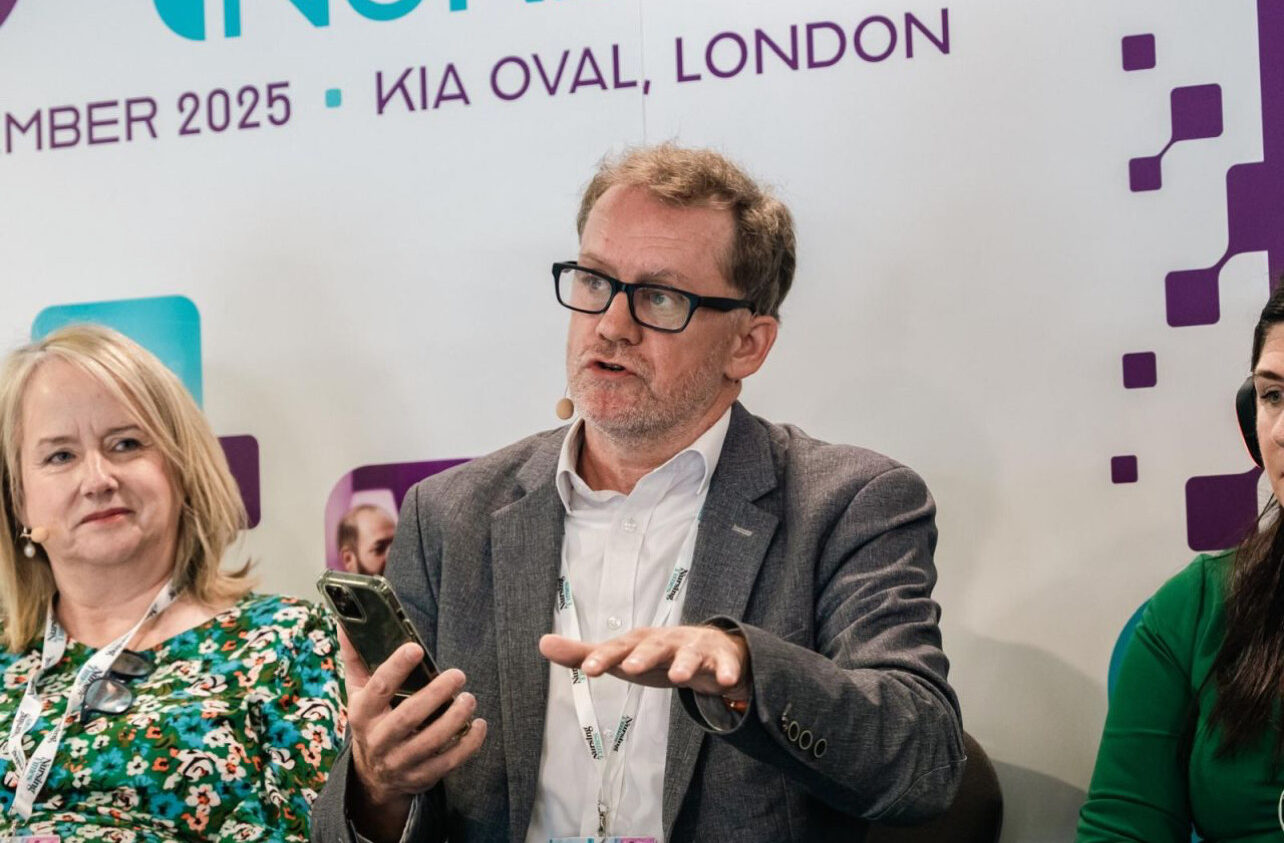Following his panel on How to Measure the ROI of Digital Transformation at the Nursing Times Digital Nursing event yesterday, Diarmaid Crean, Ethical Expert, shares why NHS neighbourhood teams should be supported by the ‘SAS’ (Special Aid Service) that is Community Nurses.
There exists a truly transformative and deep cultural change behind the new Integrated Neighbourhood Teams, and it boils down to whether Very Senior Managers (VSMs) can just “let go”.
Recent thought-leadership, (Abundance 2025), critiques how even well-intentioned regulations and bureaucratic processes – designed to protect – just stall essential action.
The concept being championed is that frontline teams must be armed with autonomy, clarity, and rapid access to resources, rather than bogged down in governance and procedural delay.For the NHS this means trusting frontline nursing to deliver – for the neighbourhoods they work in – the necessary outcomes these newly forming Teams are tasked with.
Apologies, but to explain this there is an analogy that’s too good to ignore: the way the SAS are trained to operate.
The ‘SAS’ of Neighbourhood Teams
Special Forces units are built on small, highly autonomous teams. They decide, act, adapt. But behind them sits the full weight of the military machine: satellites, logistics, air support. Their genius is not just bravery — its autonomy coupled with instant access to overwhelming backup.
Now, swap fatigues for nursing tunics. Neighbourhood nursing teams need the same set-up:
- Autonomy: a handful of nurses trusted to make decisions for their patch, not waiting for a chain of command.
- Airstrike on demand: a virtual consultant dialled in at the moment of need, bringing the hospital to the home.
- Satellite imagery: public health data combined with shared care records giving a clear view of the patient’s terrain — history, meds, risks — before the first knock on the door.
- Rapid extraction: diagnostics and escalation pathways when the situation is beyond local capability.
- Airdrops (not paperwork): SAS soldiers don’t download and complete out-of-date intranet forms and then wait for available slots in four months for three layers of governance committees to sign off new kit. They radio the need and a pallet of supplies lands beside them. That’s the model: strip out bureaucracy so support flows instantly to the frontline.
And here’s the crucial part: the patients who matter most for NHS sustainability are those with multiple conditions, complex needs, and long histories of contact with the system. They consume a disproportionate share of resources. No new “pathway” or centrally designed process map can ever serve them effectively. Complexity defeats process thinking. Only a frontline team with authority, intelligence, and immediate access to system-wide backup can coordinate care at this level.
Neighbourhood Health Guidelines 2025/26
This is exactly where the Neighbourhood Health Guidelines 2025/26 place their focus: the 7% of people with complex needs who account for almost half of hospital costs. The guidance sets out six nationally standardised components — population health management, modern general practice, community health, neighbourhood MDTs, intermediate care, urgent neighbourhood services. Is the necessary top-down system-wide backup support offer.
But the same guidance insists on person-centred, holistic, co-produced care with visible professional leadership. Here lies the balance: national frameworks that standardise, the support offer and a frontline reality that demands autonomy.
An example: Washwood Heath Hub
The Washwood Heath Hub in Birmingham shows what happens when the balance is struck. Their neighbourhood MDT, armed with live operational data and co-located services, cut inpatient spells by 22%, GP appointments by nearly half, and ED attendances by 5%. Mental health access surged 148%. Top-down vision gave them legitimacy; frontline autonomy delivered the results, and the right care was provided.
Which is why VSMs must flip their role. Instead of designing pathways and issuing rules from above, their job becomes entirely subservient: clearing obstacles, supplying resources, and defending the autonomy of the frontline specialists who know the patient and act at the point of contact.
The comparison is playful, of course. Nursing is not about defeating enemies. But it is about operating with skill and precision under pressure, in small teams, with the right intelligence and support.
That’s the Special Aid Service.
—
Diarmaid Crean is an Ethical Expert and highly experienced digital health leader with a strong track record of delivering national-scale innovation across health and care. Formerly Deputy Director for Digital Health at Public Health England and Chief Digital and Technology Officer at Sussex Community NHS Foundation Trust, Diarmaid now advises both public and private sector clients on large-scale digital transformation through Ethical Healthcare Consulting.
If you would like to discuss how we can support your neighbourhood teams with digital enablement and service design, get in touch with Diarmaid.
